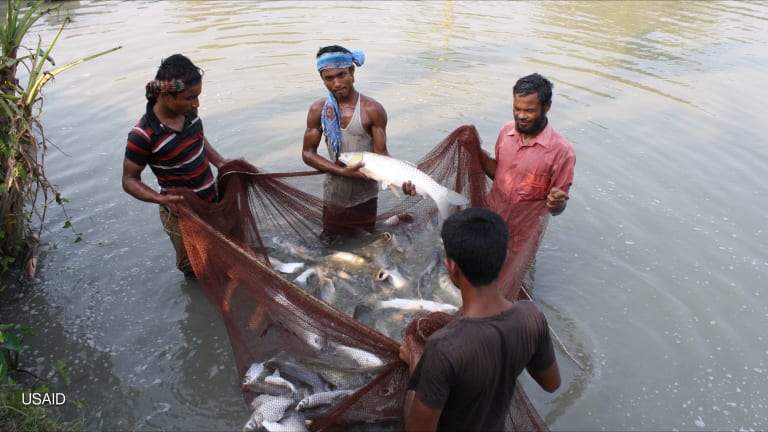The United States is the world’s biggest donor of international food aid: It funnels billions of dollars annually into emergency vouchers for food in crises, school meals programs, more productive crops, and improving smallholder farmers’ livelihoods in the world’s lowest-income countries.
On Friday, that entire system came crashing down when the State Department issued an unprecedented stop-work order for foreign aid grants and contacts as part of the Trump administration’s 90-day freeze of nearly all foreign assistance. While “emergency food aid” is exempt from the order, it remains unclear what counts under that umbrella.
Meanwhile, the directive has paralyzed a vast swath of U.S.-funded food aid and agricultural research work. It has hit many programs funded by the U.S. Agency for International Development, with its nearly $5 billion annual budget for food aid. USAID’s flagship food security initiative, Feed the Future, has ground to a halt. With an annual budget of nearly $1 billion, the initiative works to address root causes of hunger by boosting nutrition and agriculture-led economic growth in 20 countries across Africa, Asia, and Latin America.








